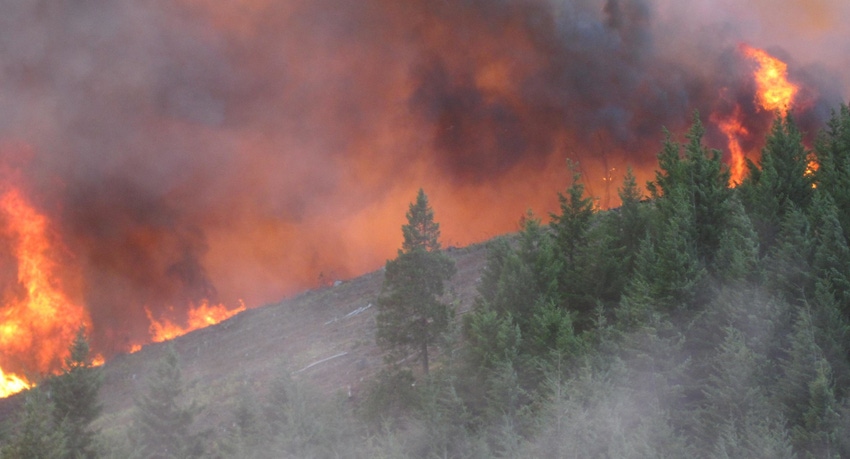July 1, 2021

WSU Extension Foresters will help eastern Washington landowners understand how fire shapes our ecology, plants, and animal communities in a new webinar, Wednesday, July 14.
Aimed at owners of forest property and rural residents, this webinar, titled “Cycle of Fire,” explores the behavior and types of fire, wildfire’s effects on wildlife and plants, and shares how to create wildlife habitat while reducing the natural fuels for fire.
Divided by a mountain range stretching from Canada to Oregon, Washington State has two distinct forested eco-regions. Encapsulated within the rain shadow of the Cascade mountains, eastern Washington is subjected to hot, dry, summers. With limited water resources, this climate favors low density forests and woodlands with lush understories of grasses and small shrubs. However, the summer dry season brings favorable conditions for wildland fires.
Naturally occurring lighting strikes and the cultural burning practices of Native Americans allowed fire to shape the ecosystems of the Inland Northwest.
Sean Alexander, WSU’s Northeast Washington Extension Forester, and Department of Natural Resources Wildlife Biologist Ken Bevis will lead the discussion, untangling the ecology and behavior of fire. They will investigate how plants and animals respond to fire-driven ecosystems. As participants learn how to safeguard their home and forests to become more fire resilient, Alexander and Bevis will also discuss strategies and methods they can use to promote wildlife habitat.
Admission is free.
To learn more or register, visit the Extension Forestry webinar site.
Source: Washington State University, which is solely responsible for the information provided and is wholly owned by the source. Informa Business Media and all its subsidiaries are not responsible for any of the content contained in this information asset.
You May Also Like




